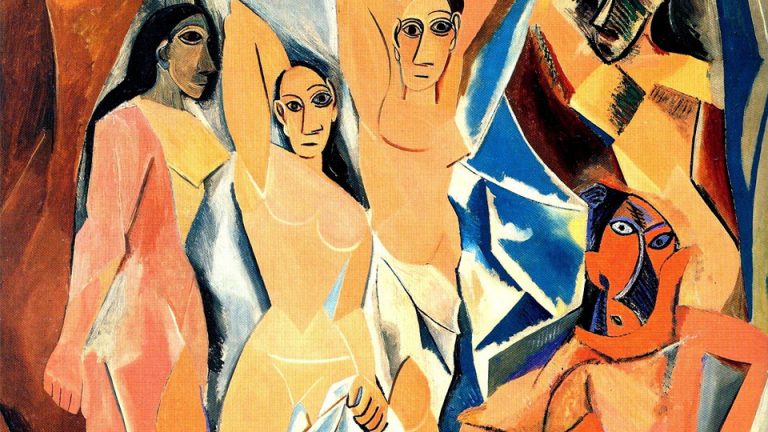If you think that having a rich and rigorous language is about geeks, you are wrong. With a good vocabulary you can hit on, in bars and if nobody understands you, try to intersperse it with some burps. Expressing ourselves in an elaborate and complex way can be very useful, especially when we name the name “whores” in repetition. Think that in Ancient Rome they had about 50 synonyms for this word, they are all compiled in the book Palabrotalogy by Virgilio Ortega. And why did Latinos have so many synonyms if they are not the same Latinos who invented reggaeton?
Leaving Latinos aside, you will know that Apricots University promotes culture and the educated fox, for this reason we have curated the most cultured list of synonyms for the word “prostitute”, including terms that have fallen into disuse. Also, we have discarded all those words like “slut, buscone, cock heater, etc.” because they are not synonyms , but very ugly words referring to any woman who enjoys sex and loves to fuck but without money in between; at most, a dinner or a few paid drinks, of course.
Let’s go to the mess.
We begin with the definition of Prostitute: “Person who has sex in exchange for money”, although the word “whore” is much more frequent, which we do not advise to use if you want to remain scholarly. However, the definitions of R.A.E sometimes seem more rancid than jerseys that smell mothballs, as well as being too generic and therefore incorrect. For this reason we wanted to update the definition like this: “Prostitute: Person of legal age who voluntarily maintains sexual relations or not, in exchange for money”.
This definiton does not fit because it is underage or non-voluntary can not match the description above, because it would no longer be talked about prostitutes but of sexual slaves. And, by the way, we speak only in feminine, not because there are no prostitutes or whores men, but because we have also pointed to the fashion of talking about prostitution as if it involved only for women.
And after having clarified this, and to give proof of your wide culture, these are the words that you will have to use from today:
- Agrofa: Term used in the Middle Ages, its origin is unknown. Today has fallen completely into disuse, in fact in the R.A.E is not because they thought they sounded very bad phrases such as: “So, darling, get me strong, tell me I am your agrofa …”
- Bordiona: Vocabula fallen into disuse, has its origin in the union of the adjective “edge” and the female suffix “ona”.
- Cellenca: From the Latin “sella”, what is known today as “silla”. The original form was “sellenca” and indicated a prostitute sitting in a chair waiting for her clients, a situation that eventually degenerated into waiting sitting on the bar stools.
- Colipoterra. One of the oldest expressions, already used in the XV and XVI centuries.
- Courtesan : Latin root, in the seventh meaning of the SAR is defined as “woman of free customs”. It seems that from the sixteenth century, women defined as “free” and “loose” were those who practiced prostitution independently, that is, without being in a house of mancebía (brothel) and, therefore, without having a ruffian (pimp).
- Escort: English derivation, “to escort” which means accompanist. In turn, the word in English derives from the French, “escorter”, which has the same meaning. The translation that has been applied in Spanish is “company girl” and normally, prostitutes with higher rates have tried to appropriate this term and away from the word “whore” that they try to attribute to girls with cheaper rates. The truth is that we still do not get used to the word “escort” without being preceded by the Ford brand.
- Fulana: This term derives from the Arabic “fulān” and means “any person” or “person whose name is unknown”. We do not know when it began to be used to refer to prostitutes, also the reason for its attribution is quite clear: prostitutes rarely appear with their real name, so nobody knows they’re real name.
- Gorrona: Right now, this definition appears in the R.A.E : “You have the habit of eating, living, giving yourself away or having fun at someone else’s expense”, but before it fell in disuse, “gorrona” meant “bitch”.
- Halconera: Already in disuse, it was called “falconera” because it hunted men like the falcon to the hens.
- Hetaira: Of Greek origin (ἑταίρα), with this word reference was made to the courtesans, very cultured, educated and independent women who did sexual services. They did not do it for money, but for pleasure. In ancient Greece, the hetairas had many influences and a high social status; among them stands out the figure of Aspasia de Mileto, a woman who fell in love Pericles, politician and Greek orator among the most influential of the Golden Age. It seems that Aspasia de Mileto advised Pericles on political issues, helping him to make decisions regarding the government of the city or war conflicts. Even Socrates asked for advice and sent his own students to consider her an excellent teacher in philosophy and rhetoric.

- Wolf: From the Latin “lupa”, these women were those who practiced sacred prostitution with the priests of the god Fauno Luperco on the occasion of the rites of February that were celebrated in the Ara Máxima. The term “lupanar” that we know today to indicate a house of appointments, vulgarly said puticlub, has the same root.
- Lumia: The lumias were characters from Galician mythology, represented with a beautiful face of a woman and the body of a dragon, or, like a beautiful Woman riding a dragon. These creatures lived in caves near the rivers, where they washed clothes and combed their hair waiting for a potential victim to pass. They were very dangerous for men because they loved them and then devoured them. This term has evolved to the current term “lumis”, used in the interior of the peninsula, especially in Madrid.
- Madama: From the French “madame” (madam), the word refers to either who practices prostitution and who runs a brothel.
- Meretriz: Of Latin origin, “mereticor”, is composed of the word “deserving” that in reality has the opposite meaning, therefore they were the women who deserved contempt since, being single, they looked for a “meritorious” husband, that is to say, with good economic and social situation. For this reason, they began to be seen badly and, consequently, to be considered prostitutes, called in Roma meretrix. By the way, for those who were attentive in the Institute and still have some memory of Latin, it will not be difficult to understand the meaning of an expression like “filius meretrix”.
- Mozcorra (or moscona): Derived from the Latin word “musca”; it began to be used because prostitutes hit and flicked men, a bit like flies with animals.
- Pelandusca: This term is born of an exemplary punishment that was exercised on those women who offered sexual favors in the street in exchange for money. Said punishment consisted of rapales the hair to zero. The exact time in which this word emerged is not known. The other ways of saying it, like “pelandrusca” is the wrong way of naming it.
- Peliforra: From the Latin pilus (hair), the root can be the same as in “bad hair” meaning dirty and careless person.
- Banner: From the French word “penon” which, in turn, derives from the Latin “penna”, which in Spanish means “pen”. In Spanish the French word was modified and associated with the Latin “pendere” (hang). The banner was nothing more than a standard that was at the head of a regiment. It ended up being used as a synonym for prostitute because it was the first one that arrived and it was most noticeable in all the celebrations, as well as the banner that was the first thing that was seen in a regiment.
- Peripatetic: In ancient Greece, the Peripatetics were the student philosophers of Aristotle, whose classes were given walking in the garden of the school that he founded in 336 BC. The word is composed of “perì” (around) and “patèo” (path), therefore the peripatetic was a “walker”. In its masculine meaning, it designated a respectable philosopher, while in the feminine it took the meaning of street prostitute.
- Pupil: From the Latin “pupilla”, the why of this synonym of prostitute is uncertain. For what we have been able to read and understand (come on, we have taken it a little out of the sleeve), in the Middle Ages these young women who lived in the mancebías (brothels), impregnated their eyes with a plant to dilate the pupil artificially The reason is that the pupil dilates in states of sexual arousal, so men unconsciously perceived women with dilated pupils as sexually receptive and, for this reason, more attractive.
- Rabiza: The R.A.E offers us this definition: “Very despicable prostitute, just like the most of our definitions. ”
- Harlot: There are two different versions about the origin of this word: one belonging to the Age Media and other that we do not know how to locate in time. According to the first, bouquets were hung on the doors of the taverns to indicate that these were not private houses, but that food, drink and whores were sold. At the same time, women who offered sexual services did the same at the doors of their homes, indicating that there was also plenty of food there. It could be defined as the old version of the current centers of Chinese massages, which hide their sexual services behind the facade of a beauty center. The second version tells that the prostitutes offered their services in a kind of cabins made with branches, hence the name. However, there are no certain sources about the veracity of this second version.
- Suripanta: Currently in disuse, this term referred to women who acted as choristers or comparsas in the theater. According to the Spanish Journal of Linguistics, the term was coined by the Spanish writer Eugenio Blasco for the operetta El joven Telémaco (1866). Possibly associated with the libertine lifestyle these women carried, the word ended up being used as the equivalent of a prostitute.
- Zorrupia: Like a fox, zorrupia derives from the Arabic “surriyya” (concubine). Do not confuse with the animal, which has its root in the Portuguese language and, of course, has another meaning.
Do you know more terms that can be added to this list? Do you know more curiosities about any of the ones we have mentioned? Leave us a comment and we will add your contributions. And now that we know all these new terms, let’s see how we can use them according to the situation we are in:
Manifest ignorance:
– “Do you know what time the concert starts?”
– “I have no colipoterra idea!”
Demonstrate economic crisis:
– “This month I have lived beyond my means and I do not have a hard peripatetic left”.
Demonstrate madness:
– “Tonight I fucked an uncle without using the condom”
– “You’re like a suripanta goat!”
It’s time to put into practice what you have learned. Write the synonym that you consider more appropriate and remember that now the goal is to be educated, the exam for chonis will be another day, ok?
If the result of the exercise has not come out as you expected, you can try again as many times as you like. Take advantage, because the free things that remain in this world are very rare!
Finishing, we anticipate that we are preparing the Atlas del Puterío, a true linguistic guide that includes the most curious terms to say “prostitute” in other languages. Our Atlas will be very useful for you if you are traveling abroad and want to show how well you are there as well. So, do not forget to read us and subscribe to our newsletter of a colipoterra!





